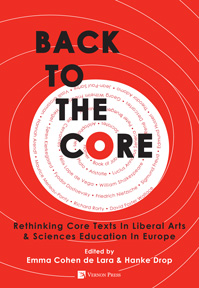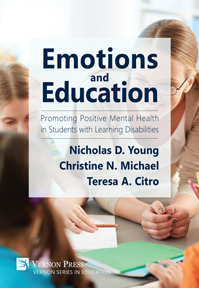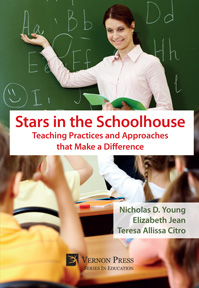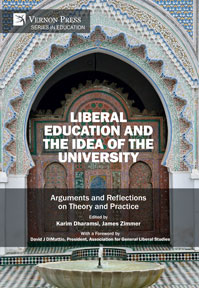Argumentation Strategies in the Classroom
by Chrysi Rapanta (Universidade Nova de Lisboa, Portugal)
Purchase this book
(click here to change currency)
There are few more important educational goals than to help students become skilled, confident arguers. Teachers by and large lack the knowledge and skills needed to meet this goal. This book provides a good introduction tailored for teachers new to the subject.
Prof. Dr. Deanna Kuhn
Columbia University
The strength of the book is its rigorous, exhaustive and very updated theoretical background. The essential concepts in the field of argumentation applied to education are defined very clearly according to the different philosophical perspectives. These concepts help understand the different approaches to the area, sometimes confusing. The book covers a gap in the literature in the field of argumentation and likewise covers an educational need. Teachers need books like this one.
Current literature in the field of argumentation and education claims that argumentation should be part of the school curriculum given its educational benefits. According to this, this book covers an editorial need for in-service and pre-service teachers.
Prof. Dr. Mercè Garcia-Milà.
Universitat de Barcelona, Spain
'Argumentation Strategies in the Classroom' is a wonderful overview of the literature on classroom argumentation. Citing a broad literature that includes argumentation theory, educational psychology, and classroom research, Rapanta has written an accessible and grounded book that helps teachers and other educational practitioners bring theory and research into practice. It also provides an authoritative snapshot of current trends in teaching with and for argumentation in the classroom. As such, it will be of interest to anyone looking to get the big picture on what we know about the role that teachers can play in fostering argumentation in the classroom, or teaching as argument, as she calls it. The book owes much of its insight to Rapanta’s IMPACT Project, a design-based research project that she conducted in collaboration with middle school teachers interested in integrating argument-based teaching in their classrooms. Of particular interest is her emphasis on balancing instructional design with classroom discourse and teacher moves. Over the course of the book, Rapanta provides a clear sense of where teachers should point their curriculum, while also providing practical steps for getting there.
Prof. Dr. Mark K. Felton
Connie Lurie College of Education, San Jose State University, USA
Argumentation as a teaching and learning method in the K-12 curriculum has received increasing attention across the globe. The reason for this is simple: argumentation helps students develop necessary critical thinking skills. However, teaching this method is not as straightforward as it may appear. Placing the classroom at the centre of the investigation, this book seeks to throw light onto argumentation as a teaching practice by asking: What does it take to teach as argument? What does it mean to be ‘argumentative’ teachers? And, how can we create classroom environments that will help and encourage young people to develop their argument skills?
Based on first-hand experience and extensive research, this volume guides the reader through argumentation with the focus placed on the relationship between this teaching method and effective learning and the need to investigate the role of teachers in encouraging argumentation in the classroom. Although there are a considerable number of tools and techniques that promote argumentation in the K-12 classroom, many teachers struggle to successfully implement them in the classroom. Aimed at addressing this issue, this book endeavours to instruct teachers on how to apply argumentation effectively in their day-to-day classes and to clarify argumentation as a teaching and learning strategy. As an important contribution to the field of argumentation and education, this book will be of interest to researchers, post-graduate students, and secondary school teachers, alike.
Introduction: What does it take to teach as argument?
Chapter 1: Argumentation as part of the instructional design process
Chapter 2: The role of teachers in promoting argumentation
Chapter 3: Potentially argumentative teaching strategies
Chapter 4: How to implement argument-based teaching in different disciplinary fields
Chapter 5: Evaluating students’ arguments in different fields
Chapter 6: Some practical implications for argument-based teaching
References
Appendix
Index
Chrysi Rapanta was awarded a Phd in Communication Sciences from the University of Lugano, Switzerland, in 2011. Since 2015 she has been a post-doctoral researcher in Philosophy of Education in the Institute of Philosophy at the Universidade Nova de Lisboa, Portugal. Before beginning her current position, she was an Assistant Professor of Communication at Zayed University, UAE. Having studied Psychology, Pedagogy, and Communication, her current research is focused on adapting argumentation theory in ways that may serve educational praxis, in particular, teachers’ argumentation strategies in the classroom. She has also published in reputable education journals including the Review of Educational Research, the Journal of Philosophy of Education, and the British Journal of Educational Technology.
Argumentation dialogue; classroom discourse; argument skills; argumentation strategies; innovative pedagogy; argument-based teaching
See also
Bibliographic Information
Book Title
Argumentation Strategies in the Classroom
ISBN
978-1-62273-313-2
Edition
1st
Number of pages
145
Physical size
236mm x 160mm

![Argumentation Strategies in the Classroom [Hardback]](/file/7495/bbe524623b0ef9923b75a89cbd32ae0a/1543484859.jpg)







